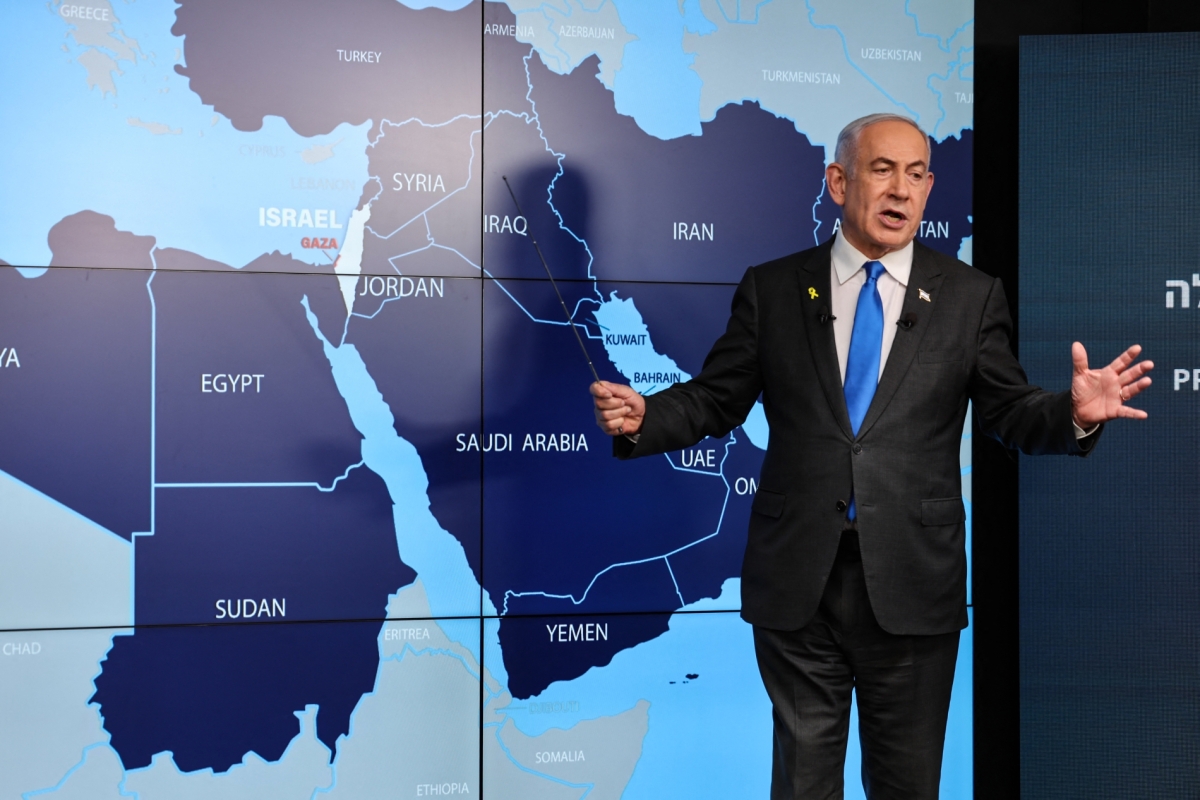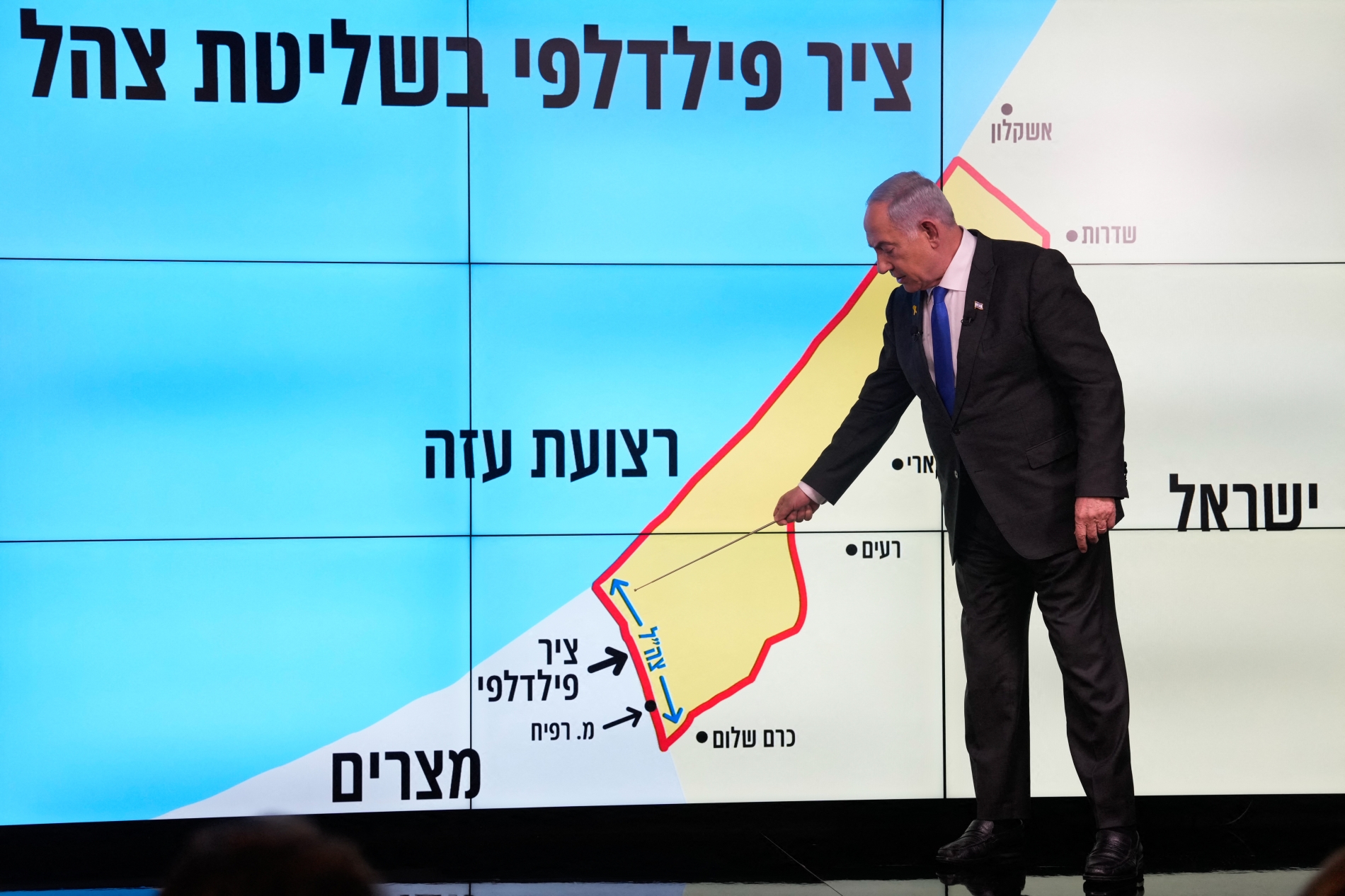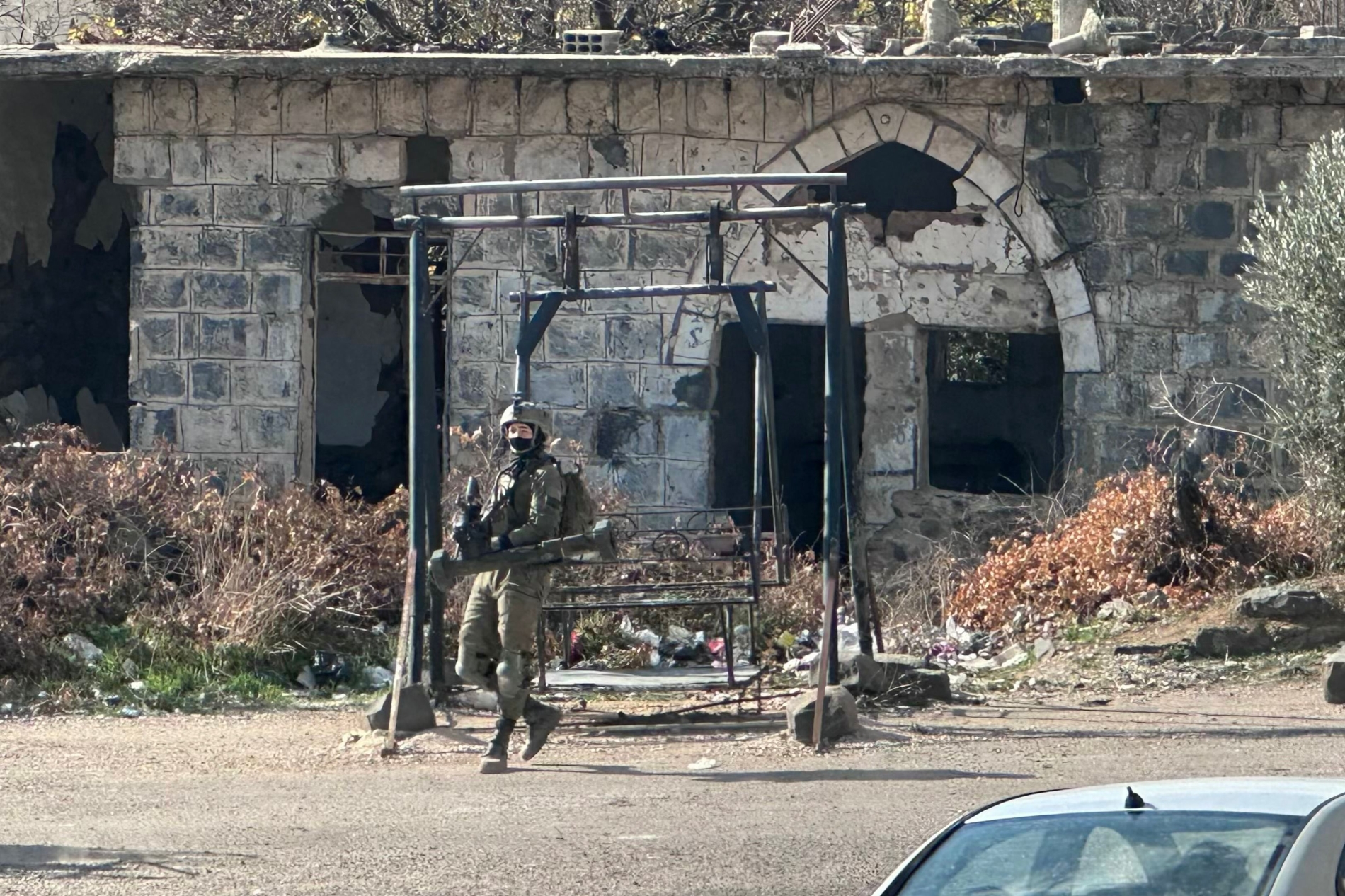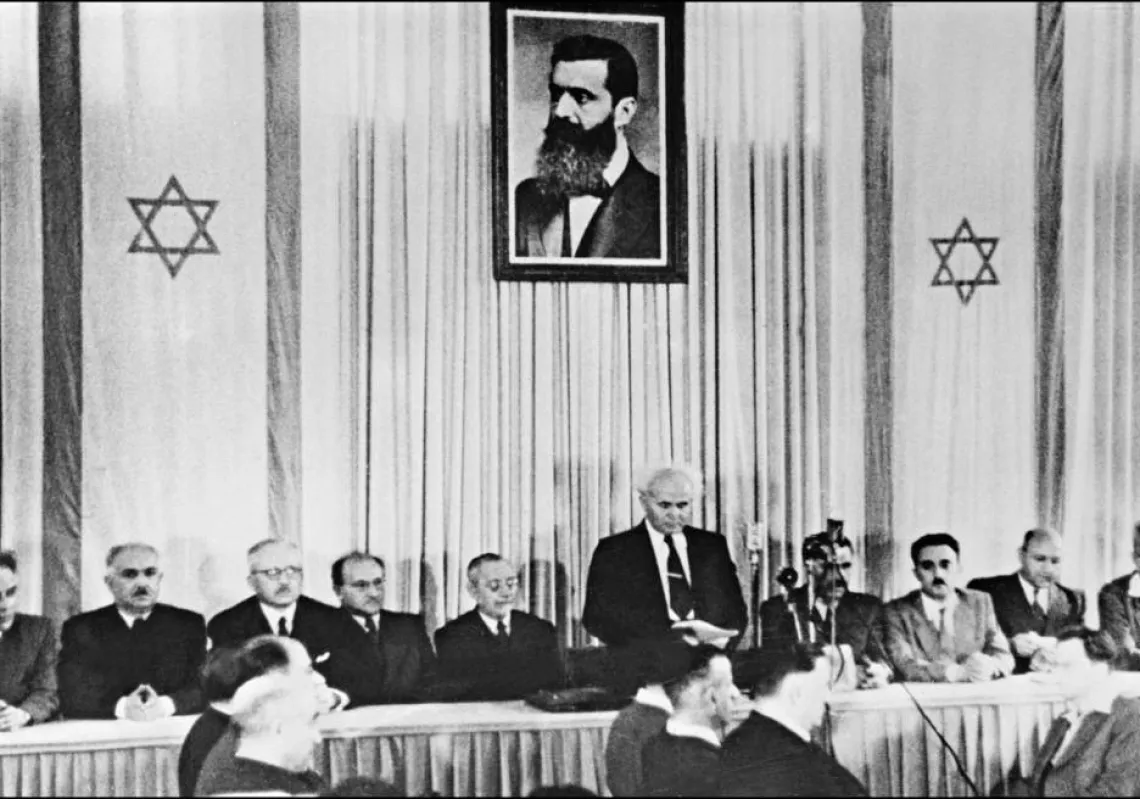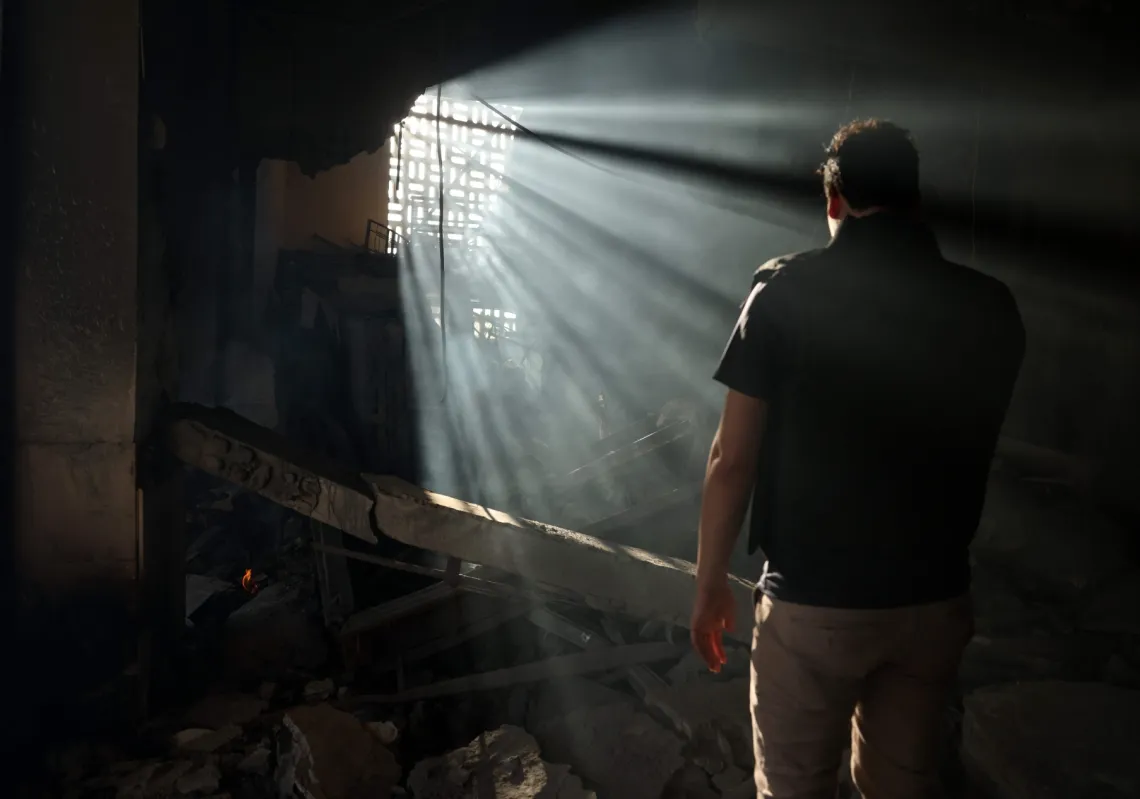Israeli Prime Minister Benjamin Netanyahu’s attachment to a vision of a ‘Greater Israel,’ as evidenced in a recent interview, should be a wake-up call to hundreds of millions of Arabs who thought such ideas were fanciful.
Netanyahu gave his thoughts away when speaking to Israeli TV channel i24News last week. The right-wing interviewer, a former parliamentarian, gave Netanyahu an amulet that featured a map of ‘Greater Israel’ and asked the PM if he related to that vision. “Very much,” said Netanyahu. “Very much.”
The Israeli leader described his as a “historic” and “spiritual” mission before changing tack. By then, though, he had said enough. While he did not refer to any specific territories he hopes to annexe, the ‘Greater Israel’ vision is well-known to include the West Bank and Gaza, territories east of the Jordan River, the Sinai Peninsula, and the eastern banks of the Nile River.
Unsurprisingly, it kicked up angry reactions in Egypt and Jordan. Cairo demanded clarification, while Amman denounced the remarks. Yet observers of Netanyahu will not be surprised. The comments are fully consistent with everything he has said or done for decades.
In Netanyahu’s 1993 book A Place among the Nations: Israel and the World, he extols a vision for the Jewish homeland that now appears to be more in line with the ‘Greater Israel’ concept referenced in his TV interview.
In his book, he blames the West for failing the Jewish people and reneging on its pledge—including through the 1917 Balfour Declaration—to give Jews a homeland, one that he thinks was meant to include the whole of Palestine and territories east and west of the Jordan River (this is not what was promised).
Back in 1993, the Palestinians and Israelis had just hammered out the Oslo Accords, recognising each other’s legitimacy for the first time and establishing a framework for resolving their conflict through negotiation, the end goal being a two-state solution. For Netanyahu, this was a horror show and a sell-out.
For him, the problem of occupying the West Bank and Gaza—home to millions of Palestinians—could be solved by massive Jewish immigration, allowing the Palestinians to live as foreigners under Israeli rule, and later being allowed to become Israeli citizens if they showed good behaviour.
Netanyahu’s book shows his lack of trust in Arabs and his conviction that peace can only be achieved through an overwhelming display of Israeli power and a radical transformation of the Arab world.


